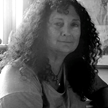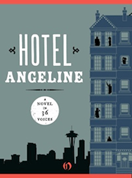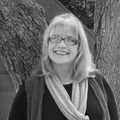Banned Books Week is an annual event celebrating the freedom to read. Typically held during the last week of September, it highlights the value of free and open access to information. Banned Books Week brings together the entire book community –- librarians, booksellers, publishers, journalists, teachers, and readers of all types –- in shared support of the freedom to seek and to express ideas, even those some consider unorthodox or unpopular.
By focusing on efforts across the country to remove or restrict access to books, Banned Books Week draws national attention to the harms of censorship. Check out the frequently challenged books section to explore the issues and controversies around book challenges and book banning.
Banned Books Week 2012 marks its 30th anniversary (see timeline). Thousands of individuals and institutions across the United States participate in Banned Books Week each year, and it has grown into a premier literary event and a national awareness and advocacy campaign around censorship. In honor of the 30th anniversary of Banned Books Week, the Office for Intellectual Freedom delivers the 50 State Salute to Banned Books Week in coordination with ALA Chapters. The 50 State Salute consists of videos on how each state celebrates the freedom to read.
In conjunction with Open Road Media, The Dirty Lowdown is joining in the celebration. We’ll feature pieces on Five Authors Share Their Favorite Banned Books, the notorious, and curiously sought after “Banned In Boston” title and “Why Is That Book Banned? Authors Share Biggest Banning Surprises”.
Today, Five Authors Share Their Favorite Banned Books. What was your favorite banned book. Please join in.
Five Authors Share Their Favorite Banned Books
Mary Glickman, author of Home in the Morning and One More River:
In 1983, a translation of The Penitent, a 1974 novel by Isaac Bashevis Singer, winner of the 1978 Nobel Prize in Literature, was launched. I loved Singer. I devoured every word he wrote. Multiple times. I asked my local library to purchase the book. Weeks later, I was sent a postcard refusing purchase on the basis that the work in question was “offensive” and without redeeming esthetic merit. Why and to whom it was offensive was not revealed.
 Ellen Datlow, acclaimed science fiction, fantasy, and horror editor:
Ellen Datlow, acclaimed science fiction, fantasy, and horror editor:
I first read Lord of the Flies by William Goldman as a teenager and it made an enormous impression on me. The lost boys’ movement from civilization to barbarism shocked me yet seemed utterly believable.
Agustín B. Palatchi, author of the forthcoming book The Florentine Emerald:
The Lord of the Flies, by William Golding. I was shocked because its raw description of children’s cruelty was beyond my imagination, but at the same time it was so realistic in every aspect, that I had to review my idealistic assumptions about human nature.
Nineteen Eighty-Four and Animal Farm by George Orwell. I was thrilled by their brilliant criticism of the system that rules modern societies and the fragility of the individual consciousness, our most precious gift. These books show me how mass communication, social manipulation, and the fear to be different from the crowd can be the worst dictatorship of all.
The Call of the Wild by Jack London. It was the first novel I read by myself as a child, and I became fascinated by the powerful images of life struggling to survive against all odds. Only the more primitive and deep instincts can be useful when civilization can no longer protect us from the wild.
The Lord of the Rings by J. R. R. Tolkien. I was thirteen years old when I read it and could not stop until I finished the book. It was like opening the door to another world, a fabulous world about to be covered by the shadow of darkness while angels (elves), were disappearing from the face of the Earth. I was amazed by the author’s ability to create a complete new world, so coherent and appealing that you could feel that it had existed in the past. Or should I say in our present?
Jennie Shortridge, contributor to Hotel Angeline and author of the forthcoming book Love Water Memory:
 When I first joined Scout and Jem on their journey in the often-challenged To Kill a Mockingbird, I was probably eleven or twelve. I understood it was a book about a time in the past. I knew that when it said “nigger,” the writer of the story said it in a historical context, and that it was an awful thing to say. I knew already that bad things—like sexual assault and wrongful arrest and discrimination towards those who are different—were part of our world. And I loved that someone was brave enough to tell this story. It made me feel braver just for having read it. It made me want to do the same thing, to write brave books about real things in a way that people would really take to heart, and maybe do something brave themselves because of it. I’ll never write a book as good as To Kill a Mockingbird, but I’ll keep trying to write the most honest books I can, thanks to Harper Lee.
When I first joined Scout and Jem on their journey in the often-challenged To Kill a Mockingbird, I was probably eleven or twelve. I understood it was a book about a time in the past. I knew that when it said “nigger,” the writer of the story said it in a historical context, and that it was an awful thing to say. I knew already that bad things—like sexual assault and wrongful arrest and discrimination towards those who are different—were part of our world. And I loved that someone was brave enough to tell this story. It made me feel braver just for having read it. It made me want to do the same thing, to write brave books about real things in a way that people would really take to heart, and maybe do something brave themselves because of it. I’ll never write a book as good as To Kill a Mockingbird, but I’ll keep trying to write the most honest books I can, thanks to Harper Lee.
Julián Sánchez, author of the forthcoming book The Antiquarian:
 I’ve read and enjoyed many of the titles on the list. Those generally considered to be youth literature stand out in particular: The Lord of the Rings and The Call of the Wild. The Lord of the Rings was the first book I ever bought, when I was twelve, while Jack London’s novels epitomized for me during my youth—and even today—the true meaning of the word “adventure.”
I’ve read and enjoyed many of the titles on the list. Those generally considered to be youth literature stand out in particular: The Lord of the Rings and The Call of the Wild. The Lord of the Rings was the first book I ever bought, when I was twelve, while Jack London’s novels epitomized for me during my youth—and even today—the true meaning of the word “adventure.”
Nevertheless, outstanding among them is the extraordinary socially, historically, and politically charged Nineteen Eighty-Four. I undertook my first reading when I was very young, perhaps fifteen, and I remember the oppressive atmosphere that surrounded the story. Back then, due to my youth, I wasn’t capable of understanding the historical implications of the work; it was later, when I was thirty years old, when I understood that Orwell reflected the anguish of a society that could have come into being and that, fortunately, did not because of the defeat of the fascists in Europe.
And today, after the passing of so much time, in the face of evolving social and historical events and technological progress, I wonder if we’re not far closer to this digital “Big Brother” than we imagine . . .
Whatever the case, the final sentence of the novel is devastating in the way it emphasizes how we can let ourselves be influenced by power in any of its forms, even when we are fully conscious of it.
Copyright © 2012 Robert Carraher All Rights Reserved



No comments:
Post a Comment